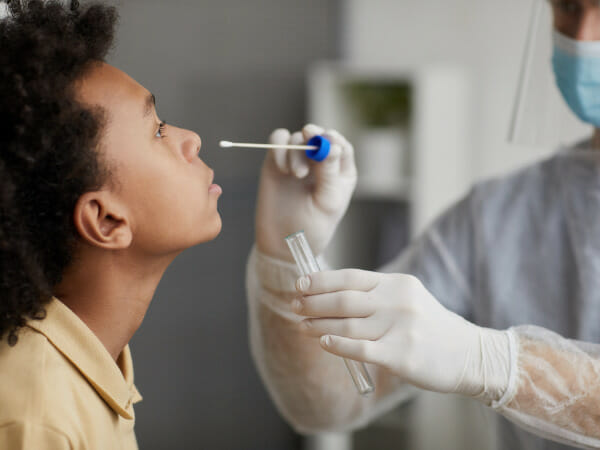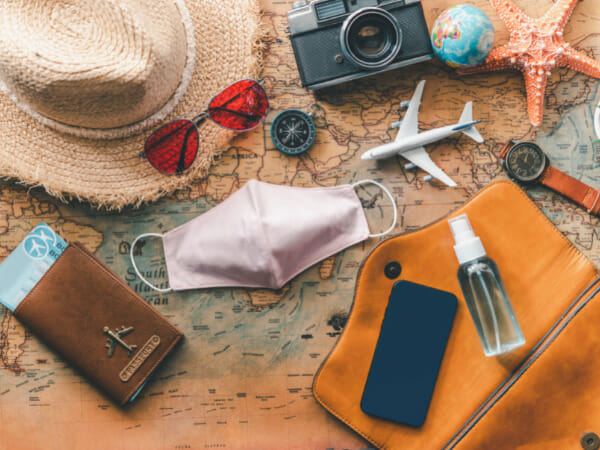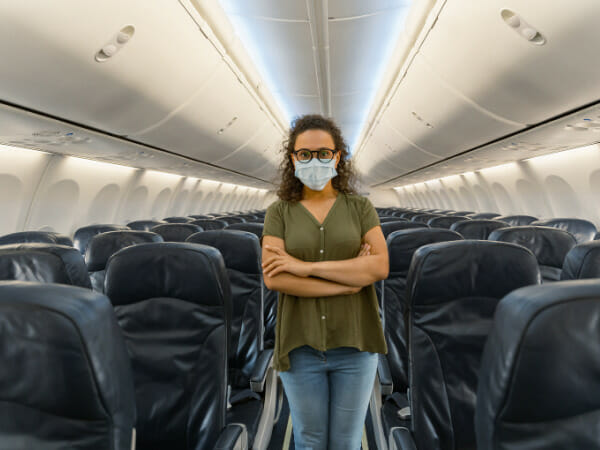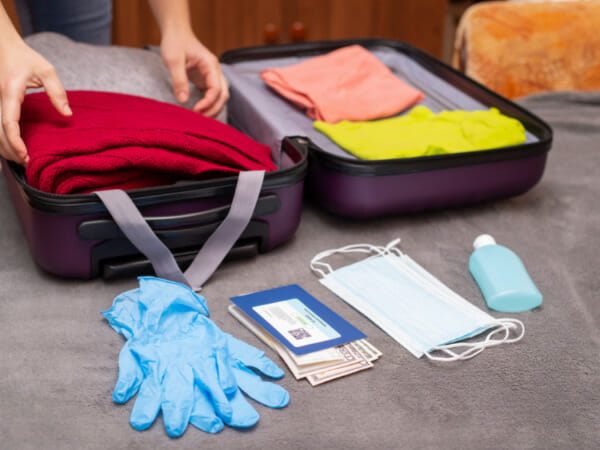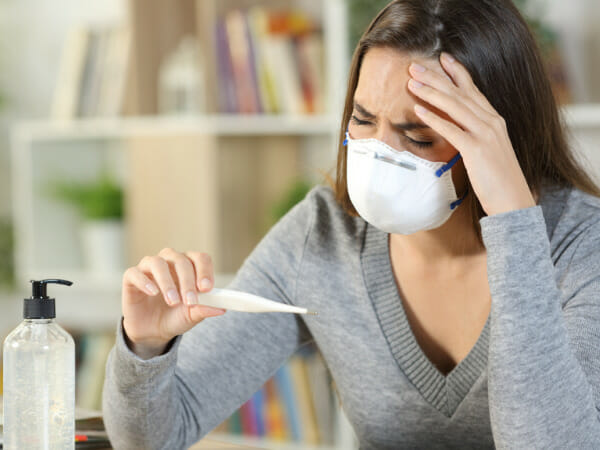Travel After COVID- Ensuring A Safe And Convenient Trip
The task of preparing for a trip in the post-Covid-19 pandemic world today can be daunting, especially when one has to plan for international travel in addition to the hassle of international traffic, with each country having specific rules, travel restrictions, and requirements regarding Covid-19.
Air Travel remains the preferred choice of travel, and every commercial airline has taken the mission of providing passengers with information that protects and ensures their well-being. Countries that are travel centers of choice for travelers have put in place measures for public health to curb the risk of a surge in the spread of the virus.
To prevent and reduce the risks of being sick and spreading Covid-19, you should have all recommended Covid-19 vaccines doses before getting on the plane. With the high number of commuters traveling the world post-pandemic, it is important to learn how to protect yourself adequately before making your trip, especially if you’re traveling to high-risk countries. Here’s what you should know.
In Preparation For Air Travel
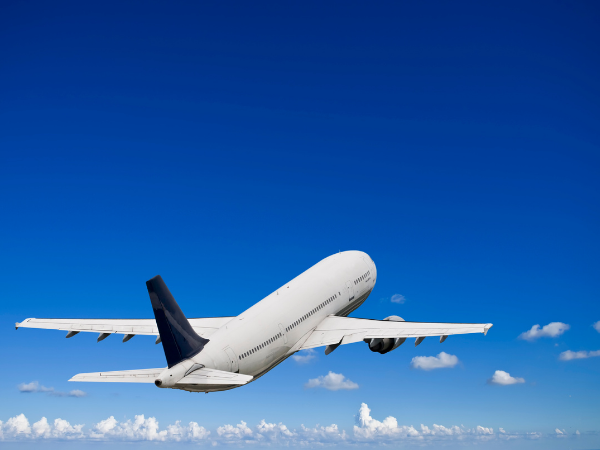
Now, before you plan a trip, there are several questions to consider, especially if you plan to travel by air:
Are You Fully Vaccinated Against COVID-19?
You must be fully vaccinated to travel, as recommended by The Center for Disease Control. Ensure you have gotten the two Covid-19 vaccine doses and the booster shot to reduce your risk of falling severely sick and developing symptoms from the virus.
Do You Have Increased Risk for Severe Illness?
Older adults and people with certain medical conditions such as diabetes have a higher risk of falling seriously ill from Covid-19.
Does Your Travel Destination Have Requirements and Restrictions for Travelers?
International countries have specific rules for incoming travelers, especially territorial governments; ensure you have enough information on the requirements before you fly. Irrespective of your full Covid-19 vaccination status, you must obey these rules and stay updated before your travel date.
Does the airline have adequate Covid-19 preventive measures?
Do endeavor to research the Covid-19 prevention guidelines of the carrier you intend to use for your flight to your destination. To protect commuters, the aviation industry already has certain guidelines and precautions they must follow, and aviation safety matters greatly.
Review Local Rules And Safety Requirements For Travelers
In some locations, state and local governments have specific requirements for incoming travelers. Some of these rules can be Constant wearing of masks when outdoors, Full Covid-19 vaccination before travel, and contact tracing and Covid-19 test on arrival or quarantine on arrival. Ensure to examine and review the Covid-19 guidelines for travelers in your specified destination choice.
The Center For Disease Control Guidelines: Travel and Testing For Covid-19 Vaccinated and Unvaccinated Travelers
For the Vaccinated
For those who have gotten vaccines, the Center For Disease Control has some guidelines:
- Testing is not required for domestic travel.
- Quarantine isn’t required for domestic travel.
- Testing isn’t required for international travel unless it is required by the country you’re traveling to.
- On arrival from international travel, a negative Covid-19 test is required.
- Proof of vaccination is needed for the arrival of non-citizens.
- Quarantine isn’t required for return from international travel, but if you notice symptoms, you should self-quarantine.
For the Unvaccinated
If you are unvaccinated, the Center for Disease Control recommends some guidelines:
- Take a Covid-19 viral test in the space of three days before your travel date.
- If the travel results aren’t available, delay travel and ensure you carry your Covid-19 test result when traveling.
- If you test positive for Covid-19 and observe symptoms, you should stay quarantined.
- After your trip, self-quarantine for three-five days.
- Ensure all public health recommendations are followed.
Safety During Travel
Here are some measures you can take to guard yourself against the Coronavirus disease:
- The use of face masks. You should always wear your face mask when you’re outdoors and on public transportation systems such as buses, trains, and planes. Face masks like the N95 or K95 are efficient at keeping you protected.
- Ensure you are fully vaccinated with Covid-19 vaccines doses and booster shots. This is a requirement for public health.
- Always carry a hand sanitizer to ensure hand hygiene due to close contact with frequently touched surfaces.
- Also, wash your hands often with soap and water. You should do this before eating, after sneezing and coughing, after contact with surfaces, especially indoor public places.
- Avoid touching your eyes, nose, and mouth.
- Keep a distance of 6 feet from other people when you are in public spaces.
- Do not take off your mask when you are
- Do not eat or drink in public transportation hubs, so your mask will always be on.
Air Travel Safety in The Aviation Industry
In the post-Covid-19 pandemic world we dwell in today, you’re required to know how to protect yourself from exposure to the pandemic – be it by using masks, effective hand hygiene (use of sanitizers and the constant washing of hands after touching objects and people).
However, in situations where exposure to the coronavirus disease is out of our control, such as in air travel where we find ourselves in the midst of other passengers and having close contact with them during flight, how do we ensure the care of our health?
Commercial airlines have put in place guidelines that protect the public health of passengers seeking to fly for trips. In addition to other flying rules, some of these prevention measures are:
- Mask use during travel
- 6 feet Separation of travel passengers during screening when queuing at security lines
- Maintain social distance with air hosts/hostesses.
- Personal items should be placed in plastic bags.
There are other aviation industry Covid-19 safety features – with each air transport company having different guidelines, but these are the basic prevention measures common to all airlines put in place to safeguard public health.
Mask Use During Travel
Airlines ensure all passengers wear their masks (K95 or N95) during screening and when flying. This lowers the risk of being exposed to the virus. However, travelers might be asked to take it off for identification during screening by employees.
6 feet Separation of Travelers During Screening
Travel passengers must keep a minimum distance of 6 feet separating them from others in most situations, such as during the screening of passengers, to prevent the risk of spreading the virus through close contact.
Compulsory Ownership of Hand Sanitizers
Every traveler must possess a hand sanitizer in their carry-on bag. This is a must from all passengers when boarding the plane and during flights.
Avoidance of Close Contact With Officers
Each traveler should place boarding passes on scanners rather than handing them to officers for inspection.
Personal Items Should Be Placed in Plastic Bags
Travelers must place personal items such as phones, purses, and keys in plastic bags. Food items should also be placed in plastic bags to reduce handling for inspection from officers.
Adhering to these prevention measures put in place by the aviation industry will reduce the risk of close contact with the virus and ensure passengers’ well-being.
Public Transportation Systems
Sitting within close range of 6 feet of others for a long period in public transportation spaces can place you at an increased risk of getting Covid-19, especially if you are unvaccinated. However, it is almost impossible to stay 6 feet apart in public transportation spaces and face-covering might be a requirement, so ensure your mask is always on.
If you prefer flying, you still need to take taxis or car-hailing or rental services on arrival. Companies that provide these services have Covid-19 guidelines that safeguard passengers.
If you decide to use ride-hailing services, or other forms of transportation, ensure your driver and you both wear masks. This will lessen the risk of Covid-19 infection. It is best if you have full Covid vaccination to put you at a reduced risk of getting Covid-19 when using public transportation.
Review of Hotels and Lodging Services
Like the aviation industry, hotels have adequate Covid-19 precaution measures for travelers. You can review and check the hotel’s websites for information on guests protection. Some of their operations are:
- The practice of physical distancing indoors for unvaccinated people
- Hotel staff has undergone counseling for vaccination.
- Adequate cleaning operations such as disinfecting frequently touched surfaces.
- The management requires staff to wear masks and wash their hands regularly.
- Guests should wear masks in indoor public spaces at the hotel, such as lounges.
- Adequate precautions for guests who receive a positive test result, such as disinfecting rooms.
- Quarantine and testing guidelines for staff that have become exposed to the virus.
Hotels also provide other services that ensure guests have extra protection during their stay to prevent the spread of the virus.
Steps to Take If You Develop Symptoms
There is always a chance you can develop Covid-19 symptoms at the last minute−maybe before your travel date or even on the morning of your flight. Then you begin to wonder about all the people you have been in close contact with over the past 3-5 days. Here’s what you should do if you observe symptoms such as coughing and a running fever right before you travel:
Ensure You Stay Home
If your symptoms started early, staying home is the best option, except you need medical care. This might be frustrating as you would have to reschedule flights or possibly avoid travel, but your health comes first. Most people will have light sickness from the virus and can recover at home. Also, you should have as much rest as possible and ensure you are always hydrated.
Take a Covid-19 Test
Take a test as soon as you can, and ensure you start treatments immediately. Self-tests are available, and call your doctor for any inquiry.
You should also stay isolated from others, especially when waiting for results. Wash your hands often and wear a nose- mask if you have to leave your home for medical care.
What if You Develop Symptoms At Your Travel Destination?
If you notice symptoms at your travel center, do take the following steps:
- Check local rules and guidelines for Covid-19.
- Self- Isolate at your hotel or lodge.
- Get tested.
- Contact your healthcare provider for medications.
- If you fall severely sick, visit health centers.
- You might need to take a covid-19 test before your return trip.
Related Articles
Minute Details to Consider Before Air Travel
Be sure to pack your medication and essential items. Carrying along medication items will prevent worry in dire situations. Some items which are absolute essentials are:
- Disinfectant wipes
- Face Masks
- Hand Sanitizers
- Portable Thermometer
- Power Bank
Remember that there are people at increased risk of becoming severely ill from the virus, such as older adults and immuno-compromised people. If you have the recommended Covid-19 vaccine dose, it will improve your risk tolerance of being severely sick from the virus.
If you happen to fall ill after preparing travel plans by chance, set aside your plans as your health comes first. You should shelf those plans if you:
- Develop Covid-19 symptoms.
- If you just took a Covid-19 test and you’re waiting for the results.
- You tested positive.
- If you have had close contact with someone who was COVID-19 positive
Final Thoughts
Ensure you self quarantine if you have had close contact with someone who has positive results with the virus and you must undergo test too. You can travel if you have a negative test. Be sure to wear a mask if you take another trip ten days after your last exposure.
Now, you have information that will aid you during your air travel beforehand, ensure you research the travel center’s choice, and adhere to all Covid-19 guidelines. Travel restrictions and requirements are ever-changing, so it’s safer to know the updates.

